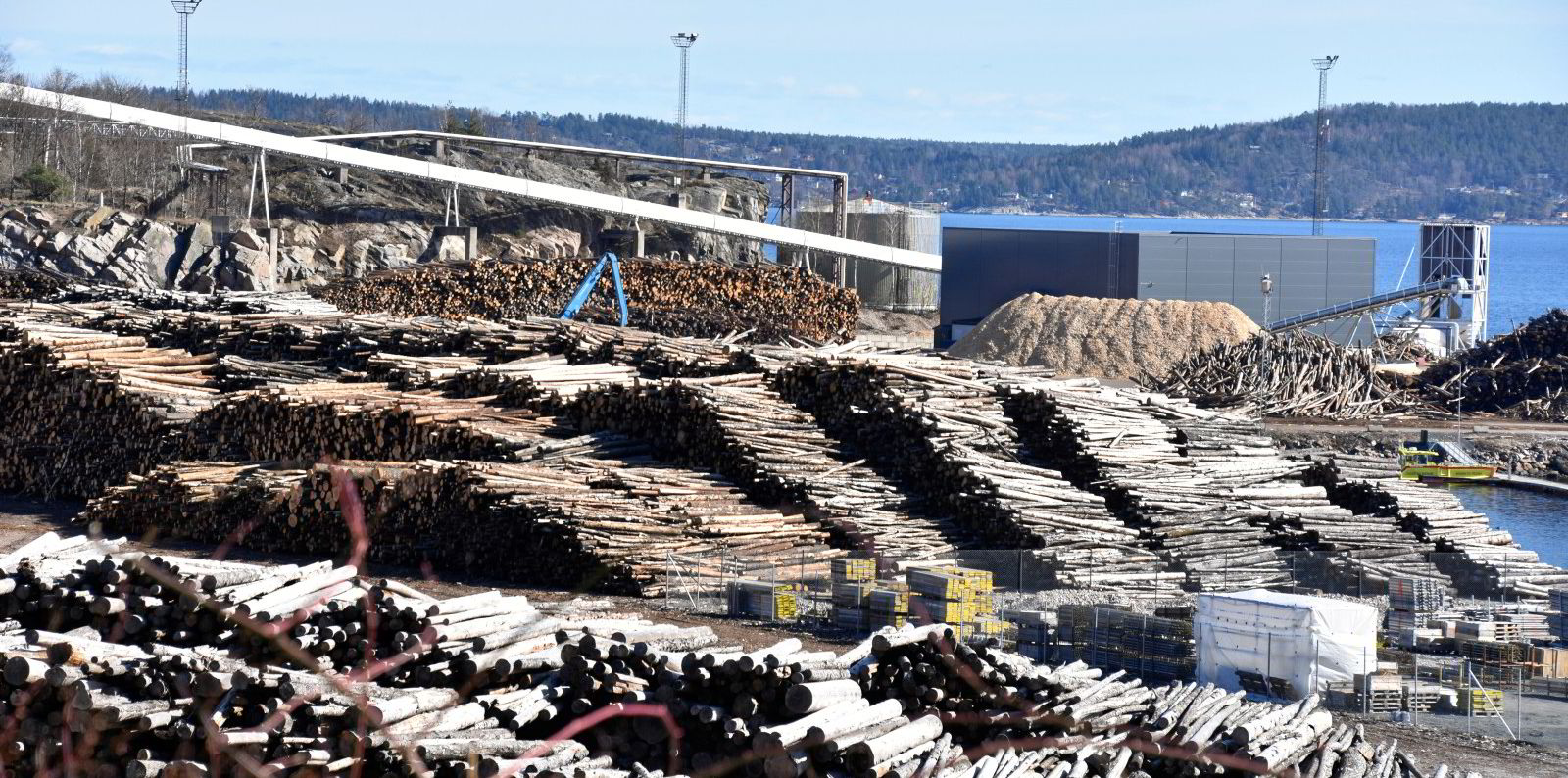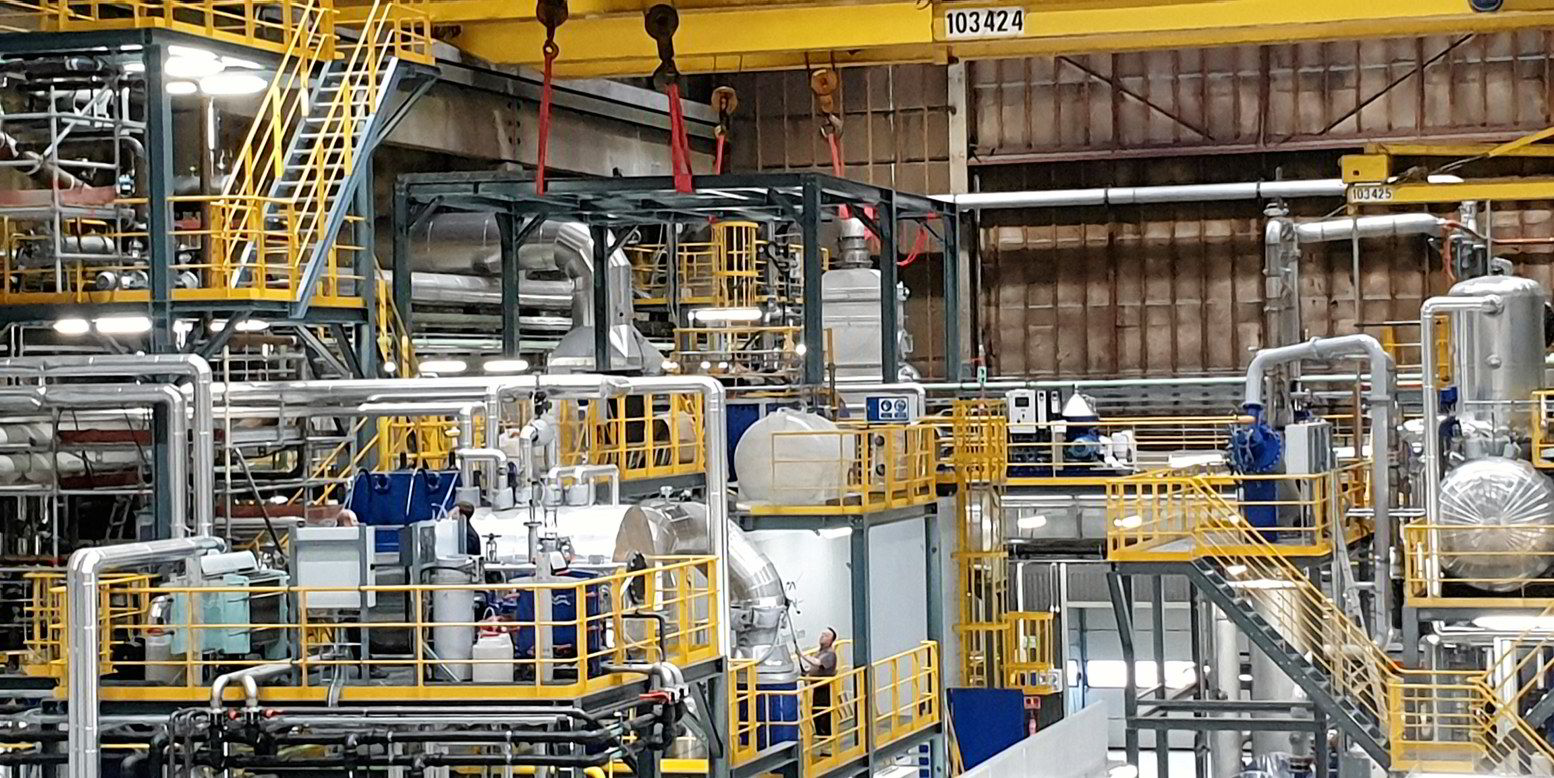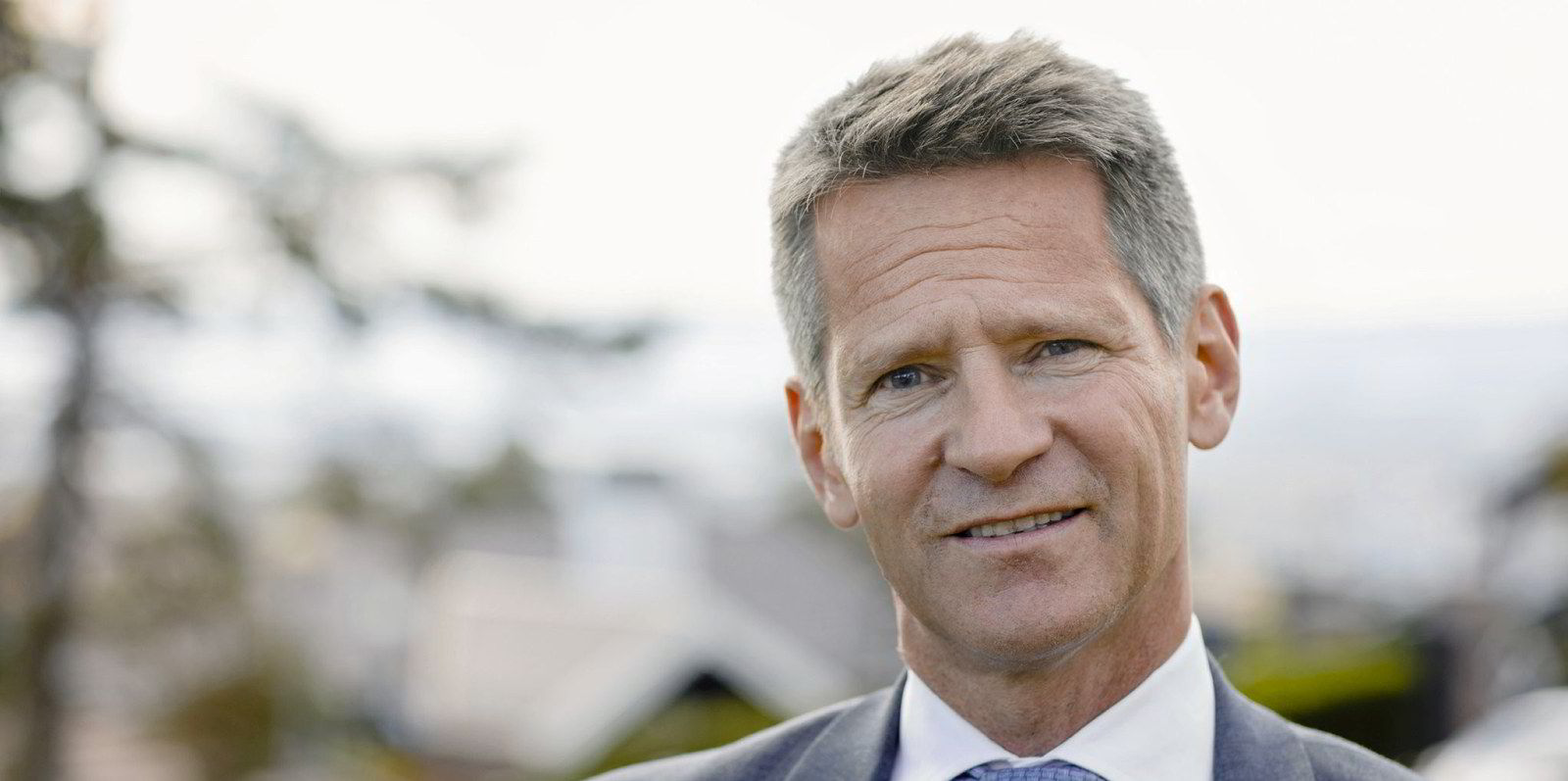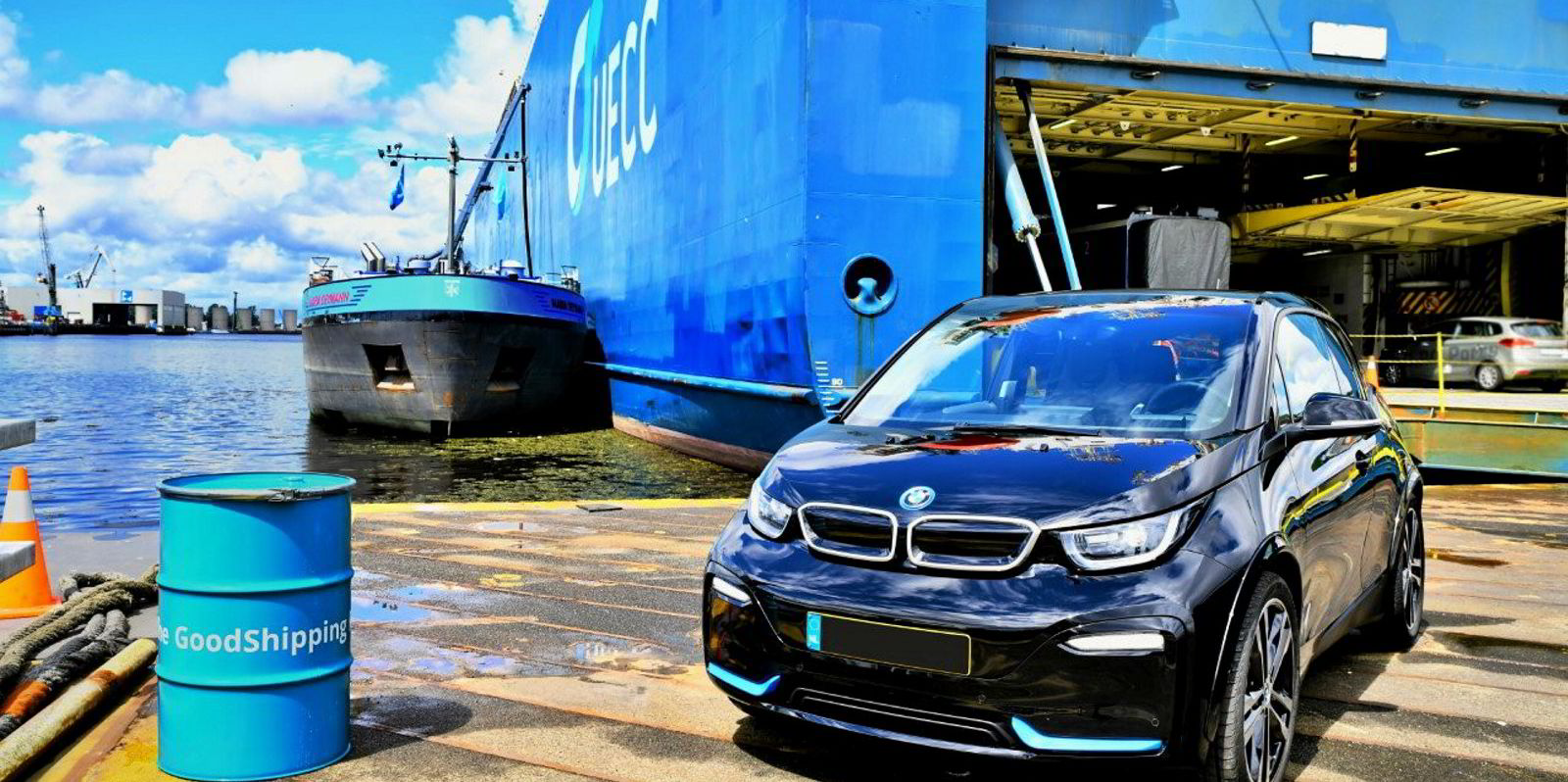Shipowners are running the risk of outsmarting themselves by investing in easy solutions to the climate challenge. Even those that attempt in good faith to reduce their climate impact can learn too late that they have spent their money on greenwashing.
That happened for some this week in Scandinavia's biofuel industry. The green is washing off rapidly there, with distressing results for some who thought they were getting ahead of the climate curve.
Biofuel, somewhat like carbon trading, is an approach to carbon neutrality that does not actually avoid emissions, but makes them disappear through accounting. In effect, the operator of a factory, aeroplane or ship can run it on biofuel, add up all the CO2 it emits, and then subtract all the CO2 that was fixed from the atmosphere by the plants that ultimately provided the fuel.
There are a number of possible objections to that kind of accounting, but the most basic one is that the providers of the biomass might simply be lying about where they got it.
An investigation this week by Swedish newspaper Dagens Nyheter examined the country's biofuel industry, specifically forest industry players who claim to be producing climate-friendly fuels from "forest waste".
"In Sweden, we don't cut down trees to burn them up," the newspaper wrote, paraphrasing Sweden's biofuel industry advocates.
But as soon as the newspaper scratched that thin layer of green, it found a lot of brown.
Up the chimney
"Forest waste" may sound like unusable bits swept up after a forest has been harvested for construction or pulp.
Actually, however, the feedstock for Scandinavian "biofuel from forest waste" seems to be whole logs, and not necessarily what are called "fuel grade" logs.
Dagens Nyheter found that Sweden's green-branded industrialists have been clearing vast tracts of forest in Estonia and in Sweden itself precisely to burn them up. Not in the old-fashioned way as logs, of course, but in liquid form, after passing through the expensive technology of a biofuel plant.
Swedish timber yards at Uddevalla hold a large share of logs waiting to be ground, liquefied, and tanked, including some hardwood of commercially useable quality, the paper found.
TradeWinds has likewise visited a yard in Norway where logs in large quantities await the chipper.
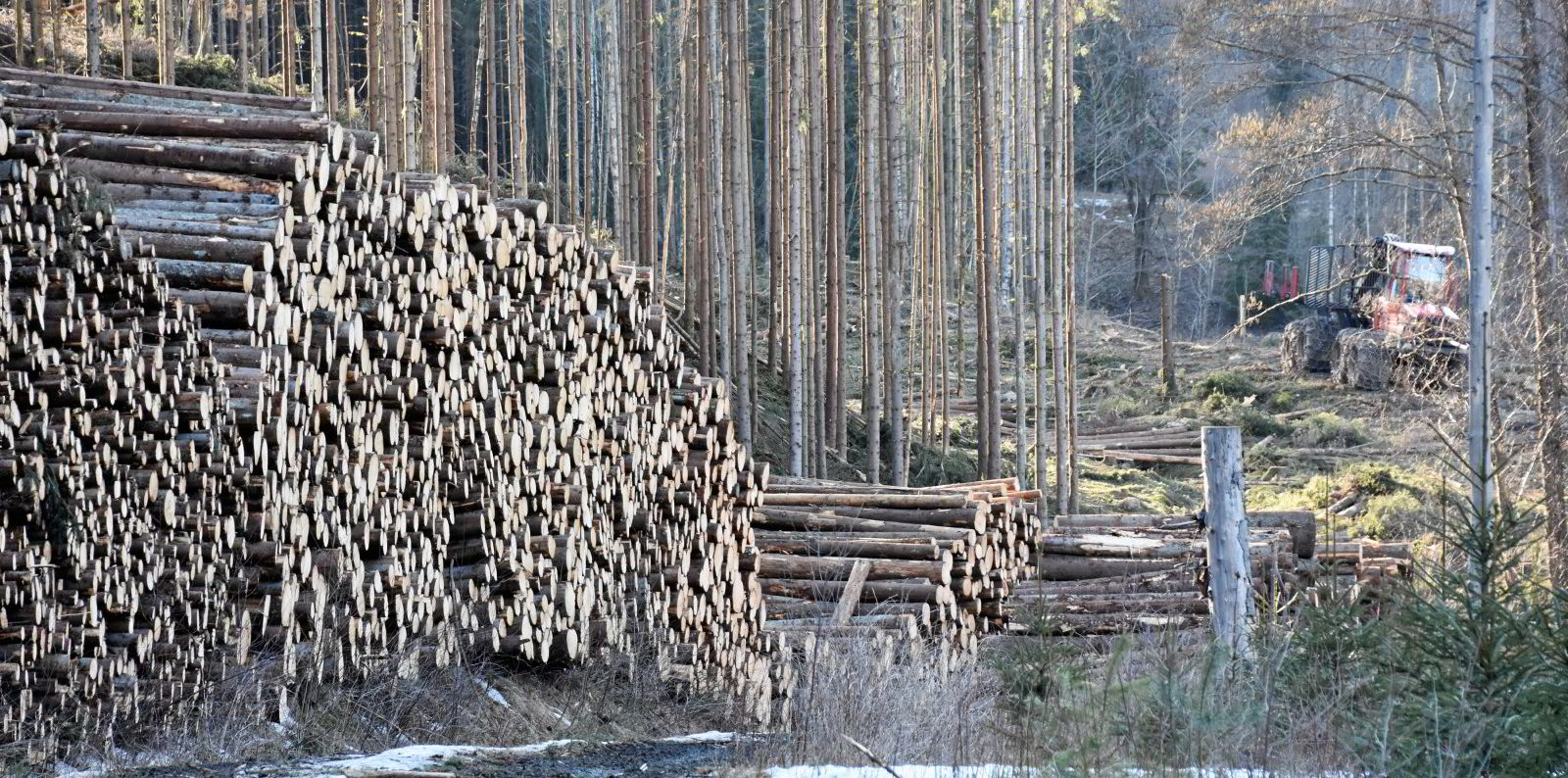
The former Sodra Cell cellulose plant at Tofte on the Oslo Fjord was once a local shipping centre — with room for more than 150,000 cbm of logs — but was closed a decade ago along with much of the Norwegian forest industry. Norway has largely shipped its logs to Sweden by train since. But the Tofte lumberyard is once again packed to the water's edge although the pulping plant was long since shipped to China.
Norwegian state-owned power company Statkraft and Swedish forest owner consortium Sodra are developing a "forest waste" refinery there under the brand Silva Green Fuel, and hope to begin shipping aviation fuel in 2025. But a Statkraft spokesman said recently that the logs at the Tofte plant are currently being chipped and shipped to Denmark.
Stealing the Grail
The cleanest possible solutions to diminishing the climate impact of transport — hydrogen, for example — do not exist yet in any practical sense. Biofuel is regarded as a reasonable if limited approach to carbon neutrality.
Like other industries forced to go green, shipping is under pressure to get its solution right or else, with no guarantee that any investment decision will work technically and commercially, or be accepted by regulators and rewarded by the market.
For that reason, many have resigned themselves to an excruciatingly gradualist approach — adopting a succession of technologies, each expensive, each destined to be discarded, but each a little closer to the holy grail of zero emissions.
Others, however, want to steal the grail through the magic of carbon accounting.
Several shipowners or charterers have achieved carbon neutral voyages, or so they have announced. But they have done this by buying carbon credits — which, like biofuel, are only as green as the history behind them.
Shipowners who go that route risk investing in solutions that could go up in smoke like Scandinavian forest waste.
“The last thing you want is for Greenpeace to climb on your vessel and say you are greenwashing,” as BRS Group shipbroker Alexander Hochreutener recently told my colleague Max Tingyao Lin.
The burden of due diligence, and the risk of costly disappointment, will finally be on the user.
